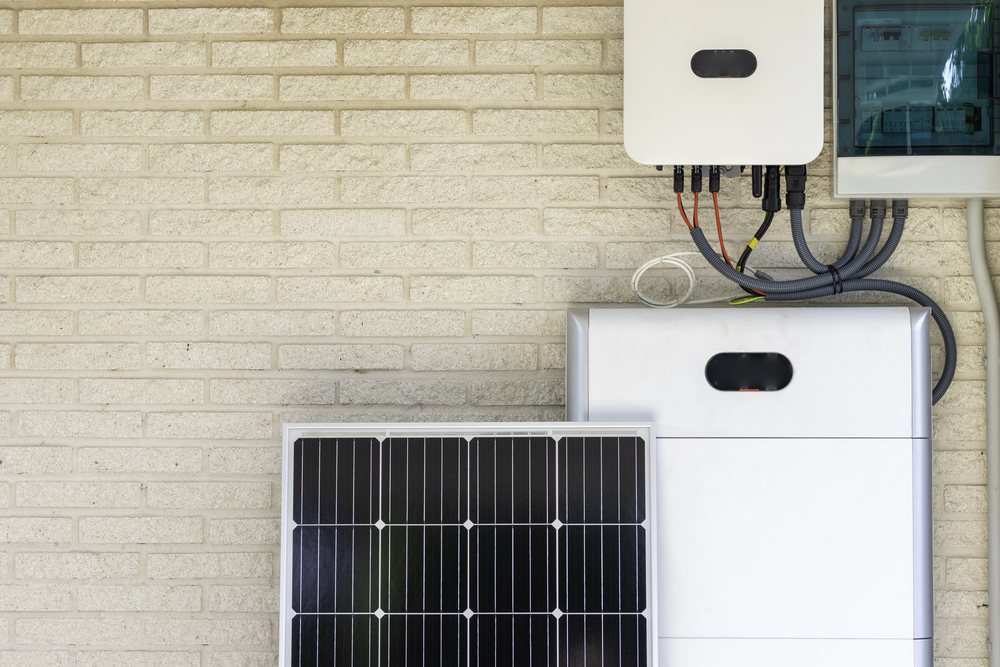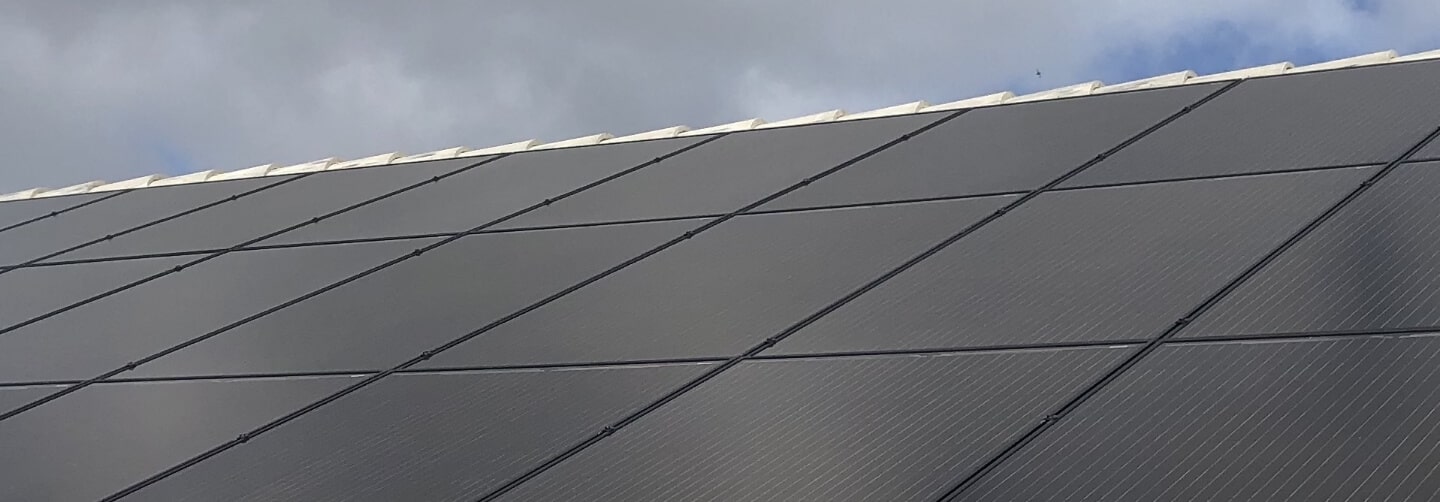Can You Use Deep-Cycle Batteries For Solar Panels?

To truly take control of your energy, you need storage that captures electricity when the sun is shining and delivers it when you need it most. That’s where deep-cycle batteries come into play.
If you’ve been wondering: Can you use deep-cycle batteries for solar panels? The answer is yes. These batteries are the backbone of reliable off-grid and hybrid solar setups, from RVs and boats to homes looking for backup power during outages.
Solar power starts with the dream of independence for many: running your RV without a noisy generator, keeping appliances on during a storm, or sailing knowing that your systems will keep running even when you’re far from shore.
Deep-cycle batteries make all of that possible. They are built for sustained use and can be charged and discharged repeatedly without the quick wear you’d see in a regular car battery.
Using Deep-Cycle Batteries for Solar Panels
Deep-cycle batteries can deliver a steady flow of current over long periods of time. Unlike car batteries that offer short bursts of power, these batteries thrive on repeated charging and discharging cycles. This makes them an ideal partner for solar panels, which generate electricity during daylight hours and require an efficient storage solution for energy use after dark.
The principle is straightforward. Your solar panel charges the deep-cycle battery during the day. That stored energy is then available whenever you need it. Without this storage link, much of the electricity generated during the day would go unused.
Why Deep-Cycle Batteries Are Different from Regular Batteries
The distinction between deep-cycle and regular batteries lies in performance and longevity. A car battery starts an engine with a quick surge of power, not to sustain continuous discharge.
However, a deep-cycle battery handles extended use without degrading as quickly. It can be discharged up to 80 percent of its capacity, although most experts recommend staying above 45 percent to maximize lifespan. This ability to cycle repeatedly without losing efficiency is what makes it such a reliable choice for solar storage.
When paired with solar panels, these batteries allow you to capture energy when the sun is shining and make it available when it is not. That balance between generation and storage transforms a solar array into a dependable power source.
Types of Deep-Cycle Batteries for Solar Applications
Selecting the right battery type depends on your energy needs, budget, and maintenance preferences. Flooded lead-acid batteries have long been the most affordable entry point, although they require regular upkeep. They are popular among users seeking reliability at a lower upfront cost, provided they are willing to dedicate time to maintenance.
AGM (absorbed glass mat) batteries represent a sealed option that eliminates the need for electrolyte checks or topping up fluids. They handle vibration well, which makes them suitable for RV and marine installations. AGM batteries typically cost more than flooded lead-acid but provide longer service and less hassle.
Lithium iron phosphate batteries have become the top-tier option for many solar users. They weigh less, provide faster charging, and offer thousands of cycles over their lifespan.
While the initial investment is higher, the longevity and performance benefits can deliver better value over time. Many lithium models also include battery management systems that protect against unsafe charging or discharging conditions.
Key Considerations When Choosing a Deep-Cycle Battery
Energy consumption plays the biggest role in selecting storage. Homeowners, RV travelers, and boat owners all have unique usage profiles, and the correct battery should match those demands. Calculating daily consumption in watt-hours or kilowatt-hours gives a clear starting point for capacity needs.
Budget also shapes the decision. While flooded lead-acid batteries cost the least upfront, they often need replacement sooner and require regular maintenance. AGM and lithium batteries cost more initially, but reduced maintenance and longer service life may offset that expense over time.
Lifespan matters as well. Lithium batteries can last more than a decade. On the other hand, sealed lead-acid and AGM batteries provide several years of reliable service with proper care. Flooded lead-acid options typically have the shortest life span but remain useful for lower-cost setups.
Physical constraints such as size and weight also factor in. Lithium batteries offer compact designs that fit into smaller spaces and reduce overall system weight. This makes them especially appealing for RVs, boats, and off-grid cabins where every inch and pound matters.
Solar Panel to Charge Deep-Cycle Battery Systems
The charging relationship between a solar panel and a deep-cycle battery is important. Panels generate direct current that flows into the battery bank through a charge controller. This controller regulates voltage and prevents overcharging, which protects the battery’s health.
Flooded lead-acid batteries handle overcharging better than sealed varieties but require topping up and proper ventilation. AGM and lithium batteries depend more on precise charging profiles. For example, lithium iron phosphate requires a charger that switches off completely once the battery reaches capacity. This type of system avoids unnecessary wear and keeps performance consistent.
Charging speed also differs. Lithium batteries recharge faster because they can accept higher current levels without overheating. By contrast, lead-acid batteries have more limitations on charging rates. Depending on the size of your solar array, the total charge time for a fully drained battery can range from five to eight hours under direct sunlight.
Safety and Maintenance Factors
Deep-cycle batteries are safe when installed and maintained correctly. Flooded lead-acid options require ventilation to prevent gas buildup and upright placement to prevent leaks. AGM and lithium batteries remove most of those concerns, offering sealed, maintenance-free operation.
Lithium systems carry a slightly higher risk of overheating if sourced from unreliable manufacturers or installed incorrectly. However, reputable products include management systems that regulate temperature, voltage, and current. Choosing batteries from trusted brands and working with experienced installers minimizes risks and maximizes efficiency.
Lifespan and Long-Term Value
The service life of deep-cycle batteries varies by type. Gel batteries often last around 1,100 cycles, absorbed glass mat options around 600 cycles, and lithium iron phosphate up to 7,000 cycles. In practical terms, this translates to an average life of five to fifteen years, depending on technology and usage.
When considering long-term value, lithium batteries offer the best return despite the higher purchase price. Their extended cycle life, faster charging, lighter weight, and minimal maintenance make them attractive for serious solar users. Lead-acid batteries still have a role, but will require replacement sooner for those seeking an affordable upfront solution.
Which Battery Fits Your Solar System
The best choice depends on your unique energy profile. An RV with modest energy needs may function well with AGM or smaller lithium options. A home looking to protect against grid outages or move fully off-grid may benefit from a larger lithium bank for resilience and long-term performance. Boats that need reliable power on the water often turn to sealed or lithium solutions that can handle rough environments without leaking or requiring ventilation.
Compatibility with your solar array also matters. Voltage alignment between your solar panels, charge controller, and battery bank prevents inefficiency. Most RVs and smaller setups rely on 12V systems, while larger off-grid homes often move to 48V banks for efficiency.
How We Help You Select the Right Solar Battery
Selecting the right storage solution involves considering your energy needs, system design, and budget together. At Solar Energy Solutions of America, our solar battery back-ups offer reliable energy storage that matches your goals, whether you want backup power for your home or a lightweight solution for an RV or boat.
We also deliver complete solar services from system design to installation. Turn every sunset into stored power and every storm into peace of mind. Connect with us today, and let’s build the perfect solar battery solution for your lifestyle.
